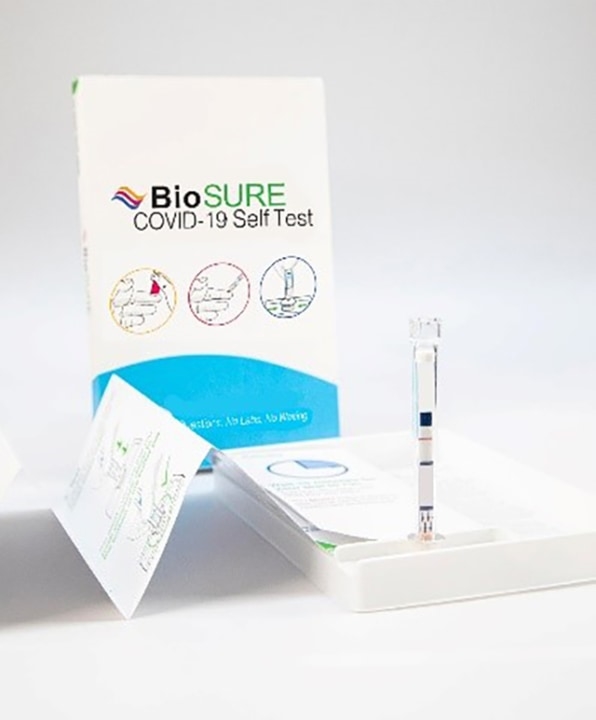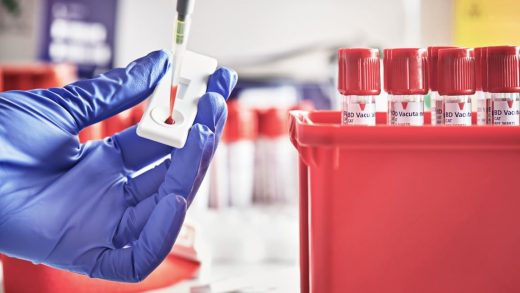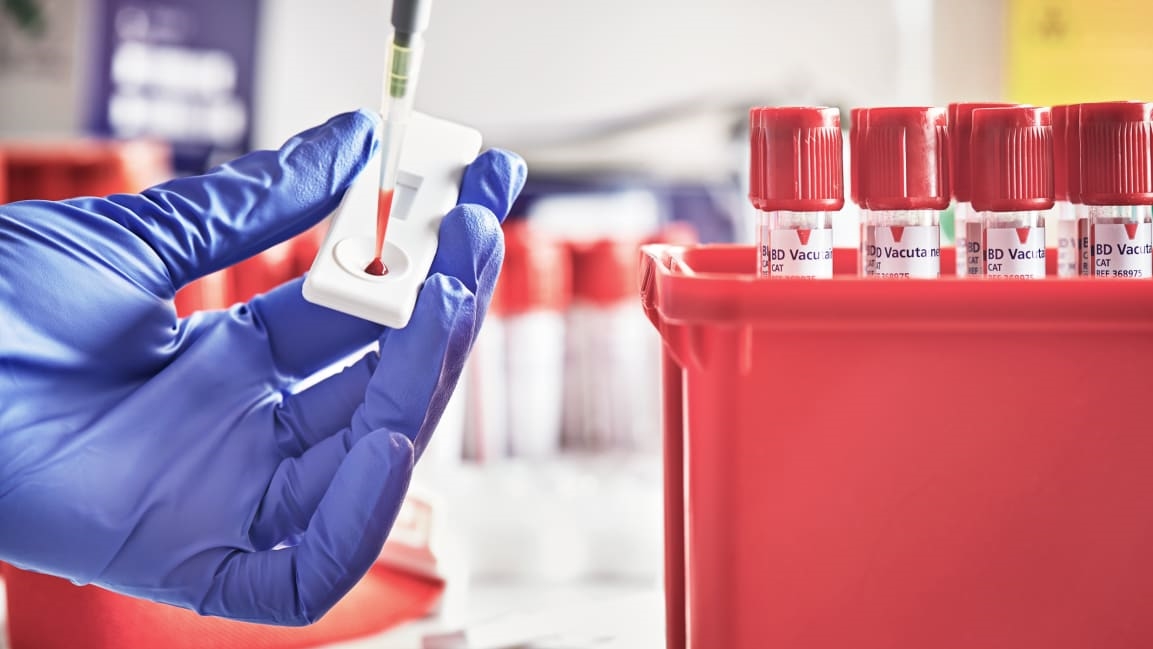In Senegal, a new COVID-19 test will cost just $1 and take 10 minutes for results
A coronavirus test in the U.S. can cost hundreds of dollars and take hours, or even days, to process in a lab. But a new test that will be produced in Senegal will cost around $1—and one version of the test gives results in only 10 minutes.
Mologic, a U.K.-based biotech company, is partnering with the Institut Pasteur de Dakar in Senegal to make six ultra-low-cost tests: lab, clinic, and home versions of an antibody test that can detect whether someone’s immune system has been exposed to the virus, along with three versions of an antigen test that detects the virus directly.

“It’s a time for us to be dropping the prices as much as possible now, so that we can get on top of this pandemic,” says Joe Fitchett, Mologic’s medical director. With other tests, the opposite is happening. “What we’re seeing, because of very high demand, is the crowding out of resources and supply chains that could benefit the world’s poorest. That’s really important because automatically the prices are sky high, and it’s not a level playing field. What we’re trying to achieve here is to deliver high-performance, low-cost devices that do not profit here, because if we profit here, we only prolong this pandemic.”
Mologic worked to reduce production costs as much as it could, and cut out middlemen that also raise prices. But the primary difference from other biotech companies is a basic decision not to profit from the crisis. “We know a business opportunity when we see one, but we also know when it isn’t one,” he says. “We sometimes need to just accept that these are health needs. These are imperatives for us to create new systems that address them properly, rather than charging high prices for suboptimal products.”
In low-income countries covered by a vaccine alliance called Gavi, the company is aiming to charge £1, or a little more than $1, for a rapid test for clinics, and around £1.30 for lab antibody tests. (The cost of home-based tests is still to be determined.) The tests will also be available in high-income countries, where they will cost slightly more, but still less than other options. The antibody lab test is already in production, the other antibody tests are being validated, and the antigen tests are under accelerated development now.
Making multiple versions of the tests for different settings helps make it more likely that people can be tested. Mologic cofounder Paul Davis invented the first home pregnancy test, and the home tests for COVID-19 use the same basic technology, taking a tiny sample of blood and then displaying a line on a strip. “It doesn’t require electricity infrastructure or complex systems,” Fitchett says. “It is essentially doing the same thing that you would normally do in a hospital lab, but in a much-simplified form.”
Before the pandemic, the company had already been collaborating with Institut Pasteur to increase access to tests for other diseases, from Ebola to yellow fever, with support from the Gates Foundation and other funders. Tests for 14 diseases are under development. A state-of-the-art new manufacturing site at Institut Pasteur, called DiaTropix, began construction late last year to make diagnostics in Senegal; now, it will begin manufacturing coronavirus tests in June. “They’ve gone straight into validating the equipment and assembling COVID-19 tests,” Fitchett says. Mologic is also producing tests in the U.K. “We think it’s important to have these tests made jointly in a high-income and low-income setting,” he says. “They can be made there, and they should be made there, because it helps build a biotechnology capacity that hadn’t existed before. It will not only protect them from this pandemic but support the next epidemics.”
This type of distributed manufacturing is critical, he says, especially for epidemics that get far less attention from other diagnostic companies because there’s little potential for profit or because they affect relatively few people globally. Yellow fever, for example, is a deadly disease but only requires around 50,000 tests to cover the continent of Africa now—not a large enough number that most manufacturers would consider it worthwhile to produce. “The idea here is to take it away from the big manufacturing lines and make smaller manufacturing lines closer to demand,” he says. “If you do that, and you can achieve creating a sustainable infrastructure that delivers that, then you are immediately addressing those unmet needs.”
It’s something that should happen throughout Africa, he says. “I think what [Institut Pasteur director] Amadou Sall and team are doing is inspiring a continent that this biotechnology capability is possible to create in low-income settings, but also that it must be created, if we are to respond effectively to epidemics. We know that the systems we have established to date are not fit for purpose, because we have so many neglected epidemics that don’t have any useful tools that are affordable.”
(22)



